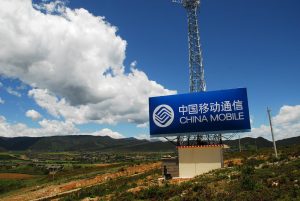 China is the smog capital of the world. This became a national emergency around two years ago when a Chinese reporter released her version of Al Gore’s “Inconvenient Truth”. It was called “Under the Dome” and the documentary forced the government to act on air pollution. Within months, Beijing said it would increase taxes on air polluters and cut back on coal. Last weekend, the government was at it again. They’re now promising to “make our skies blue again”. Environmental policies there have massive ramifications for Chinese companies traded in Hong Kong and on the NYSE.
China is the smog capital of the world. This became a national emergency around two years ago when a Chinese reporter released her version of Al Gore’s “Inconvenient Truth”. It was called “Under the Dome” and the documentary forced the government to act on air pollution. Within months, Beijing said it would increase taxes on air polluters and cut back on coal. Last weekend, the government was at it again. They’re now promising to “make our skies blue again”. Environmental policies there have massive ramifications for Chinese companies traded in Hong Kong and on the NYSE.
The solution to a pressing economic problem – oversupply — is now linked to an emotive popular issue – like, breathing clean air. China’s poor air quality is the result of coal burning by heavy industry, the very sector that is weighed down by the excess capacity and debt everyone points out as being China’s biggest headwind. The government needs the industrial sector to cut debt and capacity but they have encountered resistance from local governments and vested interests who depend on these companies, from steel mills to auto parts makers, in order to bring in tax revenues and keep people employed. “Environmental reasons have been used before by central government as a tool to push through change. Now they appear to be leading with it,” says Edmund Harris, portfolio manager with Guinness Atkinson Asset Management.
China produces over 1 billion tons of steel and almost 3.5 billion tons of coal each year, far more than China needs. Over the next 3-5 years China wants to take 140 million tons of steel and 800 million tons of coal capacity off line. It doesn’t mean coal and steel companies will go out of business. But what it means from an investor’s perspective is that there will be consolidation. Investment advisors who have money at work in China should stick to China specialists who may have a better clue as to which companies will benefit, and which companies will suffer from a new Blue Sky China.
Take a look at some of these names and how they’ve reacted since Sunday’s speech by Chinese premier Li Keqiang*:
Trina Solar (TSL 6,74 -0,17 -2,46%): +9.63%
But, Yingli Green Energy (YGE 1,43 -0,10 -6,53%): -16.24%
China Petroleum & Chemical Corp (SNP 50,42 +0,53 +1,06%): -1.92%
CNOOC (CEO 121,76 0,00 0,00%): -5.43%
And PetroChina (PTR 50,73 +0,27 +0,54%): -5%
EV car manufacturer, BYD Auto (Unfortunately, we could not get stock quote HKG: 1211 this time.): +0.89%
China Coal Energy Company (Unfortunately, we could not get stock quote HKG: 1898 this time.): -2.42%
But China Shenhua Energy Company (Unfortunately, we could not get stock quote HKG: 1088 this time.): +2.61%. Shenhua is one of the biggest coal producers in China, with a market cap of $48 billion. If anyone in this space is a consolidation leader, it’s Shenhua.
China’s policy now is to trade off higher overall growth for slower, more sustainable growth. “In this context, investors should think about the specific stock they want to buy,” says Harris, without naming names. There are good quality businesses operating in areas whose valuations will be affected by these Blue Sky policies, whatever they may turn out to be. “There are opportunities for those ready to take a good look,” he says.
*five day price range.

